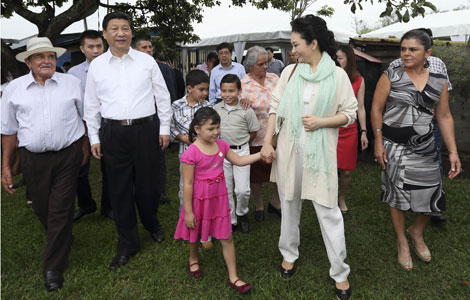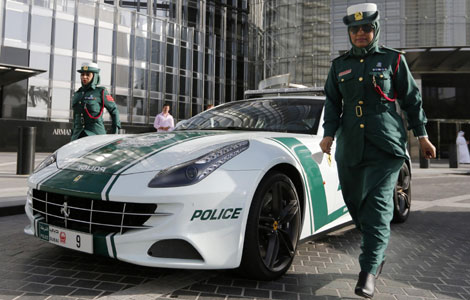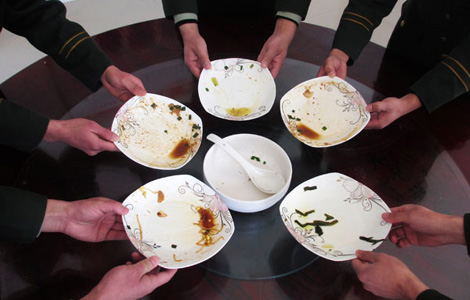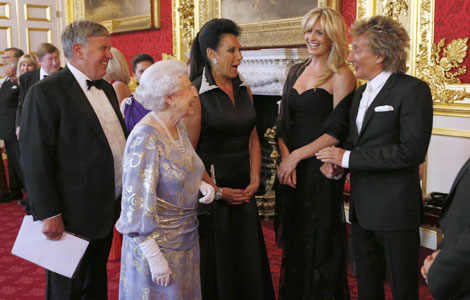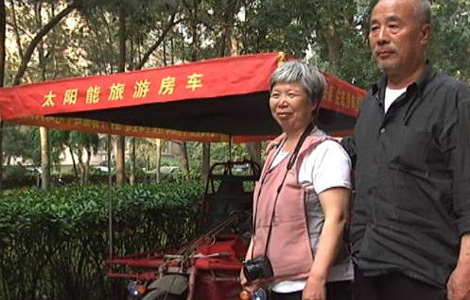Curb regional troublemaking
Updated: 2013-04-12 07:12
By Shen Dingli (China Daily)
|
||||||||
China should take responsibility and make clear what actions are allowed on its doorstep and what are not
There is a new development in China's foreign policy. While delivering a keynote speech at the opening plenary of the Boao Forum for Asia Annual Conference 2013, President Xi Jinping said no one in the international community should be allowed to throw a region and even the whole world into chaos for selfish gains. Foreign Minister Wang Yi also made it clear that China will not allow anyone to make trouble on its doorstep.
Some countries have sought to stir up trouble on China's doorstep from time to time, but because that entails places outside China and as China does not want to interfere in the internal affairs of other countries, for long it has exercised restraint and spoken in a positive tone, though it has sometimes expressed its dissatisfaction.
China's pet phrase is it seeks to uphold a stable surrounding environment and boost common development. Such a statement is quite correct, as it should first strive for a positive result no matter how bad the situation is. China is unwilling to speak harsh words out of consideration for its neighbors' feelings. This is China's generosity and tradition, as well as its culture.
Even when China was going through tough times, it still provided aid to other countries. Walking on a socialist road toward a well-off society, China cherishes the hard-won good days and wants other countries to give China the opportunity for its peaceful development. Yet while China takes pains to create opportunities for common development, some countries want to pull the rug from under it.
Some countries recently have been stirring up trouble in China's surrounding areas - by ignoring the strong opposition of the international community and conducting tests of unconventional weapons, encroaching on China's maritime territory, and "nationalizing" China's Diaoyu Islands - and an outside power coming from afar has made a show of force with its local allies. All these have created a foul atmosphere around China.
China doesn't seek selfish gains, but it will not stand by and let others stir up trouble on its doorstep. China's demand for a peaceful surrounding environment is based on international law, which stipulates that international waters or exclusive economic zones and the airspace above them can only be used for peaceful purposes and no country has the right to make trouble there.
It is time for China to adjust its foreign policy. It has done its utmost to maintain peace and make contributions to improve the well-being of other countries, but this approach has not received its due respect. China should point out what kind of a surrounding environment it wants, and tell the world what actions China is for and against.
It is high time China made it clear what actions are not allowed to happen on its doorstep. China now has the ability to make regional troublemakers subject to credible restrictions. A country cannot always count on China to contribute to its development while leaving the burden and risks to China.
And a country that acts counter to UN Security Council resolutions will be abandoned by the international community and it will be subject to Chinese sanctions because of the damage it causes to China's legitimate interests. Threatening to use force as the primary means of settling international disputes goes against the Charter of the United Nations and the initiator will come to no good end.
As a rising power with an increasingly important say in the international arena, it is necessary for China to make it clear what actions are allowed on its doorstep and what are not.
As a responsible great power, it is necessary for China to tell various countries in which direction we should join hands and move forward. Though a country can choose its own approach when dealing with domestic affairs, when it comes to transnational actions concerning international security and peace, all countries must abide by the UN Charter and not use force or threaten to use force against others in the first place. The international community must act in concert and work together to deliver on this principle. When China finally says what action is not allowed on its doorstep it will have undertaken more responsibility befitting a great power.
The author is associate dean of the Institute of International Studies, Fudan University.
Most Viewed
Editor's Picks

|

|

|

|

|

|
Today's Top News
Relationship 'relaunched'
Good start expected for summit
Xi, Mexican president discuss bilateral co-op
Cooperation to drive mutual growth
Chinese president arrives in Mexico for state visit
China is victim of hacking attacks
US to be largest trade partner
China joins fight against hacking
US Weekly

|

|
